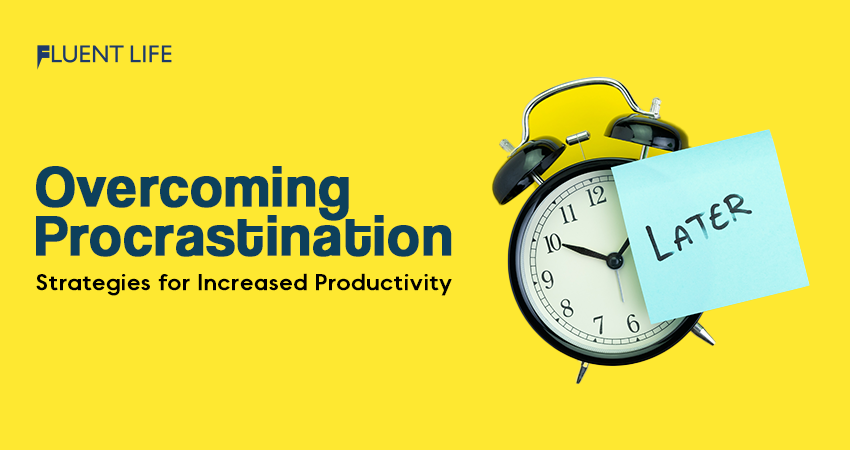
Overcoming Procrastination: Strategies for Staying On Track
Procrastination is a common challenge faced by students worldwide, and those pursuing their A-Levels in Karachi are no exception. It can hinder academic performance and increase stress levels, making it crucial to develop effective strategies to overcome this habit.
At Titan College, a top-tier A-Levels college in Karachi, we are committed to helping our students stay on track and achieve their academic goals. This blog explores practical strategies to combat procrastination and enhance productivity.
Understanding Procrastination
What is Procrastination?
Procrastination is the act of delaying or postponing tasks, often leading to last-minute rushes and subpar work. It can stem from various factors, including fear of failure, lack of motivation, or poor time management skills.

The Impact of Procrastination
Procrastination not only affects academic performance but also contributes to increased stress and anxiety. It can create a cycle of guilt and low self-esteem, further exacerbating the problem.
Identifying the Root Causes
Self-Reflection
Begin by identifying the underlying reasons for your procrastination. Are you avoiding tasks because they seem too challenging or uninteresting? Understanding the root cause can help you address the issue more effectively.
Setting Clear Goals
Unclear or overwhelming goals can lead to procrastination. Break down your tasks into smaller, manageable steps with specific deadlines to make them more approachable.
Effective Strategies to Overcome Procrastination
Prioritize and Plan
-
Create a To-Do List
Start each day by listing the tasks you need to accomplish. Prioritize them based on their importance and deadlines. A well-organized to-do list can provide a clear roadmap for your day. -
Use a Planner or Calendar
Utilize a planner or digital calendar to schedule your tasks and deadlines. Visualizing your schedule can help you allocate time effectively and avoid last-minute rushes.
Break Tasks into Smaller Steps
Large tasks can feel overwhelming and lead to procrastination. Break them down into smaller, more manageable steps. Completing these smaller tasks can provide a sense of accomplishment and motivate you to keep going.
Set Realistic Deadlines
Setting unrealistic deadlines can increase anxiety and lead to procrastination. Establish realistic and achievable deadlines for each task. This approach can help you maintain a steady pace and reduce stress.
Implementing Time Management Techniques
The Pomodoro Technique
The Pomodoro Technique involves working for a set period (usually 25 minutes) followed by a short break. This method helps maintain focus and prevent burnout. Repeat the cycle several times, taking longer breaks after a few sessions.
Time Blocking
Allocate specific blocks of time for different tasks throughout your day. Time blocking ensures that each task receives dedicated attention, reducing the temptation to procrastinate.
Creating a Productive Environment
Minimize Distractions
Identify and eliminate distractions in your study environment. This may involve turning off notifications on your devices, finding a quiet place to study, or using apps that block distracting websites.
Organize Your Space
A cluttered workspace can contribute to procrastination. Keep your study area clean and organized to create a conducive environment for concentration and productivity.
Staying Motivated
Reward Yourself
Set up a reward system for completing tasks. Treat yourself to something enjoyable after reaching a milestone. This positive reinforcement can boost motivation and encourage consistent progress.
Stay Accountable
Share your goals and deadlines with a friend or family member. Having someone hold you accountable can provide the extra push needed to stay on track.
Seeking Support
Utilize College Resources
At Titan College, we offer various resources to support our students, including academic advising, counseling services, and study groups. Don't hesitate to seek help if you're struggling with procrastination.
Join Study Groups
Joining a study group can provide structure and motivation. Collaborating with peers can help you stay focused and on schedule.
Conclusion
Overcoming procrastination requires self-awareness, effective planning, and the implementation of practical strategies. By understanding the root causes and applying the techniques discussed in this blog, you can develop better study habits and enhance your academic performance.
At Titan College, we are dedicated to supporting our students in overcoming challenges and achieving success. Embrace these strategies to stay on track and make the most of your A-Levels experience.
Related Courses and Certification
Also Online IT Certification Courses & Online Technical Certificate Programs

